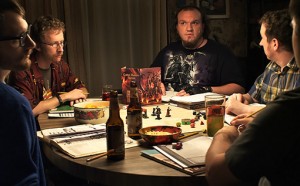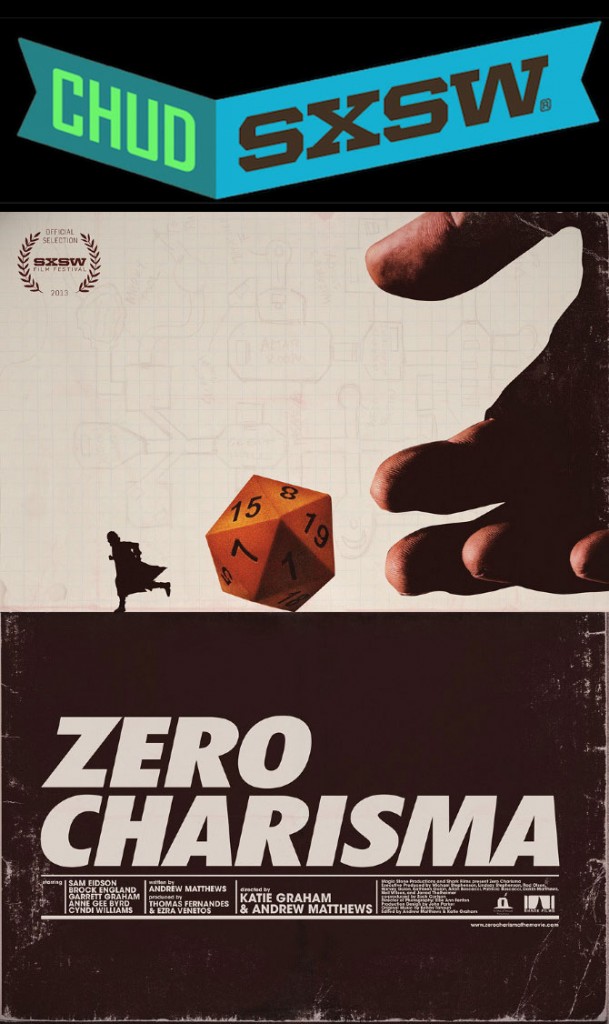 You won’t see a traditional interview from me for Zero Charisma, but fortunately there are plenty of other folks out there happy to describe how good it is. With lead actor Sam Eidson being both a best friend and a frequent collaborator it wouldn’t be right for me to add to the pile. Bias notwithstanding, I can say the film is a genuinely great one about some things a lot of films fans are going to identify with and feel confident that most will agree when they see it for themselves. It’s a small film, but its focus on a complex character that is not likely to get such an interesting, funny, or respectful treatment in any other film is worth its weight in gold. I can’t wait for more people to see it, and if the buzz is any indication here at SXSW, then someone is going to make that happen before long.
You won’t see a traditional interview from me for Zero Charisma, but fortunately there are plenty of other folks out there happy to describe how good it is. With lead actor Sam Eidson being both a best friend and a frequent collaborator it wouldn’t be right for me to add to the pile. Bias notwithstanding, I can say the film is a genuinely great one about some things a lot of films fans are going to identify with and feel confident that most will agree when they see it for themselves. It’s a small film, but its focus on a complex character that is not likely to get such an interesting, funny, or respectful treatment in any other film is worth its weight in gold. I can’t wait for more people to see it, and if the buzz is any indication here at SXSW, then someone is going to make that happen before long.
I had the pleasure of sitting down both my pal Sam Eidson and his directors Katie Graham and Andrew Matthews (who I’d never met before this festival) for a quick chat, and it’s well worth your time. We talk about their goals in terms of making a “nerd” movie, the challenges and pleasure of moving from documentary to narrative, and about working within a crowd-sourced paradigm. Graham and Matthews are best known for their involvement in Best Worst Movie, but from my talks with them and what I’ve seen in Zero Charisma, I can tell they’re going to be a team to watch in the narrative world in and of themselves.
———-
Renn Brown: Getting the tabletop terminology correct and making it generally funny and dramatic notwithstanding, tell me about crafting these characters with an eye for the subtle nuances motivating these kinds of people.
Katie Graham: It was- a lot of it was in the script, I guess. I guess it doesn’t matter what the culture is but you realize that in any situation where people are together there are hierarchies that develop, you know? Those dynamics, you know? It’s fun to see that evolving in a sub culture that maybe some people would consider absurd, but their hierarchies that are just as rigid and important. I don’t know that’s a tough one. That’s a (laughing) we sort of just pulled all the characters from people that we’ve known, different archetypes and things and made sure that we knew what everybody thinks about everybody all the time, because everybody does that anyway.
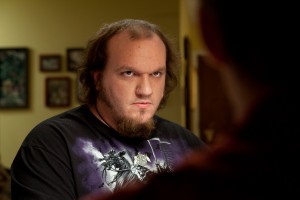 Renn: Sam, tell me about, as you’re engineering your performance, figuring out that balance of sensitivity and anger and that alpha dominance that you’ve got to have
Renn: Sam, tell me about, as you’re engineering your performance, figuring out that balance of sensitivity and anger and that alpha dominance that you’ve got to have
Sam Eidson: Right, he’s got a lot of different shades. You’ve got to throw all that- it was hard because you’ve got to throw all that into one melting pot and make it into this guy. But really when it came down to it, I just always went back to like, alright who is this guy? What does he want? What are his motives? He wants people to play his game, everyone, he wants respect and no matter how much he’s the alpha dog… he has a sensitive side to him. I was always kind of thinking that- even when I was being the alpha dog I was always thinking about that sensitive side too, so it’s always good. I’ve always heard that as an actor you keep a secret in your mind. You’re thinking maybe your character just went through some shit and no one else knows about it and maybe that’s why he’s overreacting. But Scott yeah, he’s interesting because, you know, sometimes he’ll talk to people and I have to be fake with them through Scott. I have to pretend to care about them. But my favorite stuff is when it gets real, the raw motion, that’s mine.
Renn: So for you guys as you’re scripting it, tell me about your drafting process in terms of when you spat it out for the first time did it have the proper balance between character and the nerd stuff, or did you kind of calibrate it over time..?
Andrew Matthews: It was like a hundred and fifty pages long. Because I just go, I mean I could just have them talking in the room endlessly.
Renn: So it was mostly dialogue?
Andrew: Oh yea, just like talking about all sorts of things and then Katie would go, this is…
Katie: Well a lot of the gamer stuff would go on to long and it would be just too much. Like, “scale back, I’m getting lost,” you know? So…
Andrew: We wanted to make sure that people who don’t know the world can enjoy the film so, yea.
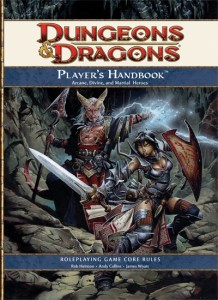 Renn: So was that a concern in terms of- I don’t feel like the film really holds anyone’s hand, but it’s also not that difficult to follow even if you haven’t got a knowledge of this stuff.
Renn: So was that a concern in terms of- I don’t feel like the film really holds anyone’s hand, but it’s also not that difficult to follow even if you haven’t got a knowledge of this stuff.
Andrew: I mean and there’s a difference too. There’s sometimes when you want the audience not to understand what’s happening. It’s like the submarine movie when everyone’s just like yelling out jargon and you’re kind of like, wow, that sounds so authentic- I don’t know if this is going on. But then the hardest part, as far as like game jargon was, I’m trying to find ways for the game to, you know, sort of match up to what you wanted to happen in the scene, quickly.
(Laughing) Yes, quickly, efficiently.Katie: Quickly, efficiently because obviously what happens in the scene where Miles attacks the character that Scott has been working on. I mean for that to happen in an actual game would probably take at least 10 minutes of time. So we had to kind of fudge it so that it all happens, bam, bam, bam.
…and that was probably the biggest and then the second biggest thing in the script was how much of an asshole do we make him. That was obviously kind of scary. Territory because were like, okay, “how are we gonna pull this off?” But I think having Sam play it helps that because he is a nice person and a sensitive person. You know, if we got an actor that was that it came to them naturally, that might not work very well. That might have been a little too much
Renn: For all of you: Sam this is your first movie at this scale, and for your guys this was your first feature narrative. So tell me about kind of working out how you directed actors or took direction for the film?
Katie: It was scary.
Andrew: It was terrifying, yeah. It’s a lot scarier than working on a documentary just because in the documentary you have these characters that are real, and you know they’re real, and you know they’re funny. So you’re kind of not worried about the audience. If they don’t find them funny it’s like, well, that’s their problem. But with a narrative if anything doesn’t ring true it’s all on your head. And anything like the art direction, the music, every little bit of it has to be…
Katie: And just in terms of the documentary, there’s so much, it’s a creative process always while you’re shooting, while you’re editing. But this, actual shooting- we shot in so few days, you know? You set everything up beforehand and that’s when you’re creative and then when you’re shooting its just go go go go!
Andrew: It’s just like ticking things off a list
Katie: Yea it’s just like check check check.
Andrew: I’m sure for the actors its more creative.
Katie: Yes, of course. When you’re acting silly, but for us it’s just like what is next, what’s next, you know?
(Laughing)
Katie (cont’d): So it wasn’t as, sort of creatively thrilling of a shooting schedule
Andre: We did do a lot of rehearsal.
Sam: Yea and I had never done that kind of thing before. Because usually it’s: “Hey Sam, show up and make a silly face and a fart noise.” And then everyone laughs. So this- I can appreciate monologues now, and I can look at actors on a whole new level because, man, you’ve got to get that stuff down, and there’s so many beats that you have to make sure you get. And yeah, they ran me through the gauntlet. They were on me and I’m glad they were, because it turned out awesome
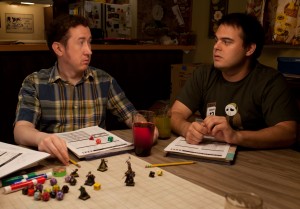 Renn: What scene were you most anxious about?
Renn: What scene were you most anxious about?
Sam: I don’t know, I feel like the ones where it had to be real emotional, like The Matrix scene and stuff like that. Just, because the set- it’s a hard place to feel natural because everyone’s watching you. So, I specifically said, “I need to be alone for a second,” for those scenes especially
Katie: And there’s nowhere to be alone.
Sam: Right right right. We’re working in these houses and you get a full crew and everybody’s just everywhere. That was probably the hardest thing.
Renn: Tell me a little bit about your visual decisions- the film is not ostentatiously filmed or oversaturated. There’s a patience to it.
Katie: Well, the big thing was we wanted a lot of handheld. That was important to us because we just kind of wanted that naturalistic feeling. We got a lot of coverage, but it was all storyboarded. Because it was out first feature we wanted to be so, so, so prepared. It’s also our DP’s first feature so we were anal about coverage and we got so much coverage- from an editing standpoint that’s important.
Renn: Did that make your post production process more challenging or?
Andrew: No, I think it helped it.
Katie: Even with all the coverage we had, we still only had something like 15 hours of footage.
Andrew: For us that’s like, in the documentaries that’s usually like 300 hours.
Katie: Not intimidating to have a lot of footage
Andrew: Yea
Katie: But I think when you’re working on a budget and a time frame, you know, you have to choose what you’re gonna focus on. And we chose to focus on the performances and the scene structure, and making sure the scenes had the right kind of beats. You know it wasn’t about high visual flare or something like that. Especially if you’re gonna have or try to have an unlikeable main character- if we don’t have these scenes structured right and if the performances aren’t right then it’s gonna sink and it doesn’t matter how pretty is, or how many swooping camera movements that we got. So we just made a decision early to focus on that and make sure the visual and camera work was just for that purpose. Although I will say what was visual important to us was the art direction.. We put a lot, a lot of time into that
Andrew: Yeah.
Katie: Something about nerd culture- it’s clearances, i’ts getting the permission to use every poster in his room; we got permission from the artists to use them.
Andrew: It’s a dense visual culture.
Katie: Yeah, exactly.
Andrew: All the board games and comic books and everything on his shelf, everything we had to get permission for.
Katie: And to make it feel like it was legitimate when you can’t use Marvel, or anything you know.
Andrew: I mean you seen lots of, I would say a lot of films of this budget it’s white walls. White walls, button up shirts, and you just… because you just don’t have somebody who can do a full time job of calling companies and getting clearances, so that’s not an option.
Katie: Yeah, that was months of work before shooting.
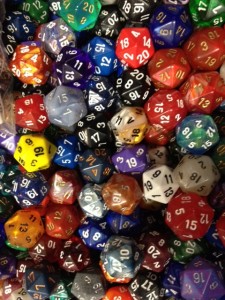 Renn: So with the kind of nerd culture landscape changing, it’s become a more dominant force in culture, whereas this movie kind of looks at what is still on the periphery of even that shift. Did that feel like any kind of, I don’t want to say mission, that’s a little dramatic, but was that in your mind? Where this particular group of people sat in what has become a larger cultural event?
Renn: So with the kind of nerd culture landscape changing, it’s become a more dominant force in culture, whereas this movie kind of looks at what is still on the periphery of even that shift. Did that feel like any kind of, I don’t want to say mission, that’s a little dramatic, but was that in your mind? Where this particular group of people sat in what has become a larger cultural event?
Katie: Yeah, sure, that’s always interesting. It’s like the character who loves vinyl insists that CDs are shit, mp3s are shit, you know. Those guys are fascinating because they’re, I guess because they are very passionate and principaled and even if other people say, “what the hell’s the difference between vinyl and mp3”? to them it doesn’t matter. As an audience, as long as that character’s passionate it doesn’t matter what it’s about. The audience is gonna go along with it. And it’s such a weird time right now for that culture. I’m not even sure that I feel totally comfortable in geek culture right now.
Renn: It’s become so amorphous.
Andrew: Is it mainstream culture? The Avengers is for “geek culture” and that was the highest grossing film of the year. So maybe it’s not even a sub culture anymore.
Renn: I’d say not.
Katie: So it’s cool to find characters, or at least one character, who you can definitely say he is not mainstream.
Renn: Sam, I know you’re a metal head and have your geeky characteristics but not all of it is second nature to you, so tell me a little bit about diving into that.
Sam: Yeah, it wasn’t all second nature because I had never played D&D and learning all the technicalities- because Scott’s very technical. He is very structured- he makes all the maps very structured, so it’s important that I do that, because usually I’m all over the place with what I like. I like this and this and this, but he has very specific things he likes, very narrowed down- he knows exactly what he likes. Especially his old school, “no video games,” “tabletop gaming is the only game.” I had to narrow myself down to that kind of mindset.
Renn: I suspect my time is closing so tell me a little bit about your ambitions. I know you’re enjoying this now- I don’t want to rob you of it, but where do you look for another narrative, more docs…
Katie: Both. I mean, we love documentaries. I don’t think I’d ever- I’ve always wanted to do it, it’s just so much fun. It’s just a creative process, organically. But definitely, we want to do more narratives. That’s really our ultimate goal with this movie, honestly.
Andre: You learn so much from your first movie. I mean, I can imagine that you learn more during your first move than you learn the next 10, you know? Going from having never done it before to having done one…
Katie: Yeah, now we’re like, “Oh, now we could really do it!”
Andrew: “Now I get it.”
Katie: So of course we want to do another narrative.
Sam: Uh, I just want to work with awesome people like you guys and other people
Katie & Andrew: Thanks
Sam: I want to work with you know, people who- I wouldn’t say this movie, [spot-on movie trailer voice] “pushes all the boundaries” but it’s different from other stuff I’ve seen I liked people who try for different aspects. And the fact that I’m the lead is completely different from anything before, you know? That’s why I moved to Austin. I saw a good culture here and I saw some directors that were making great stuff, so I hope to act and make my own stuff too.
Renn: Gotcha. Would you crowd-fund it again? I mean, that’s kind of a dumb question considering you got the money, but…
Katie: Yeah.
Andrew: It’s hard though, to crowd source. It’s scary, you know, you don’t want to fail.
Katie: It was amazing.
Andrew: It was amazing and we couldn’t have done it without it.
Katie: But it also, its challenge to- It’s a very vulnerable position, because you start that relationship with the audience so early on and you have to reveal your story, your process, you know, everything before you’ve even begun yet.
Renn: Did that create a temptation, at any point, to perhaps shift things up to reclaim control of that surprise or your narrative at all? In terms of just how open it was in the beginning, when you’re shooting, or developing or even editing. Did you feel a sense that you wanted to tweak it to change something to…
Katie: Well I guess… you have people commenting on a teaser trailer you made and giving you, “well I think that this person should do this.” And it’s like, “you haven’t read the script, you don’t know anything about it.” And you’re always feeling that little bit of a temptation- why should we cater to an audience that is already commenting on the film and we haven’t even cast it yet?
Sam: Ah, the 21st century.
Andrew: Yeah, but that’s how- if you don’t share your story or process then you can’t raise the money.
Katie: Yeah, we couldn’t have made the money initially, so it depends. For me it’s a little scary, because you want to work on your thing until you like it and then show it. We just, you know, we didn’t want any expectations, honestly. It helped us, but we prefer no one really knew about it, you know what I mean?
Renn: Certainly.
Katie: But that said, it was an amazing experience.
Andrew: We couldn’t have done the movie without that.
Renn: Gotcha. Just on a quick side note: Do you guys think you’ll reload the original trailer at any point or put it on the DVD or anything like that?
Andrew: I’ll put it on the DVD, yea.
Renn: So, last night you had your premiere, and I’m catching you at this exact moment when… I think you guys know at this point that there’s a buzz, there’s an enthusiasm- a kind of a drawn breath of expectation for the film now. So tell me what it feels like for all of you at this exact moment, where you have an amorphous blob of enthusiasm out there, but it has not taken shape yet.
Katie: Well obviously that’s exactly what you want, but then I’m a little nervous about it. So it’s kind of a back and forth- I’m kind of scared of that. But that’s all we would want, you know, 2 days ago.
Andrew: It’s like all these people are tweeting, ” it’s so great! I went to go see it!” and then everyone goes on Wednesday to see it and they’re thinking, “oh everyone says it’s so great, well we’ll see what I have to say about…”
Sam: “Entertain me!’ I’m not usually the kind of guy wh lets myself- I don’t let it get to my head. But it’s a good feeling when someone, like 5 or 6 guys, come up that I don’t know, and they’re like, “you did great.” And that was before I saw the movie too.
Andrew: I guess you know, Katie and I both sort of, you know, grew up in LA. Our families are in the business so we’ve been hearing our whole lives, “don’t get excited until it’s for sure.” It’s a very sort of pessimistic way of looking at it, because my Dad’s an actor and it doesn’t matter until you get the contract signed, you know what I mean? So I think we’re sort of just like, “this is great. So far so good.” But trying to stay realistic and grounded.
+++++++++++++++
Thanks for reading! I’d suspect there’a already plenty of interest in Zero Charisma, so I’m sure we’re be reporting on a buyer sometime in the next few months, hopefully with a sizable release to follow.
